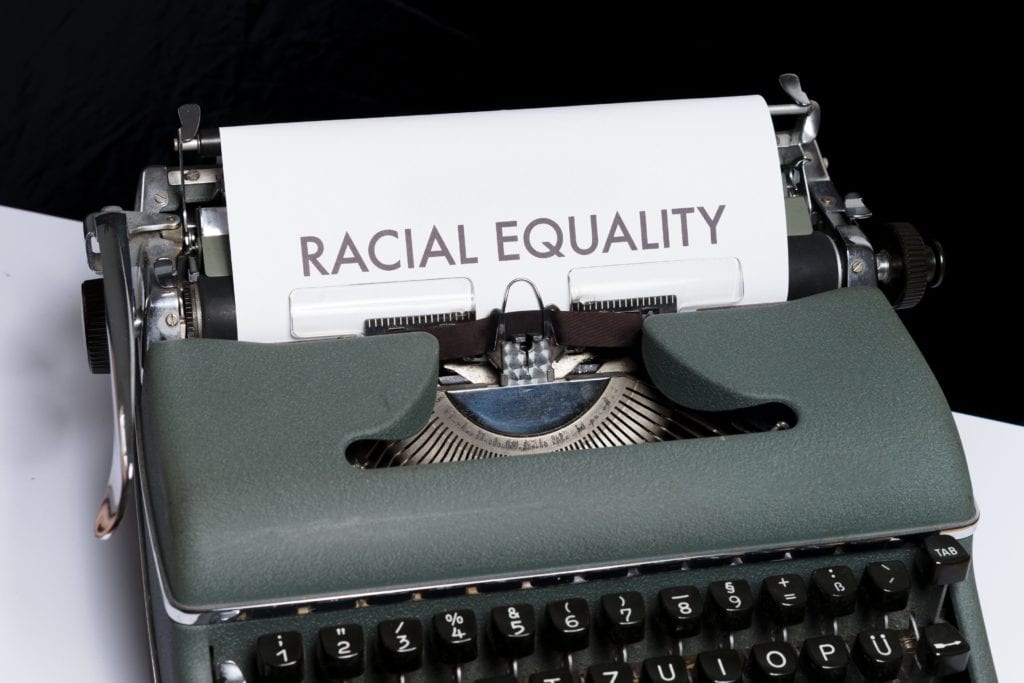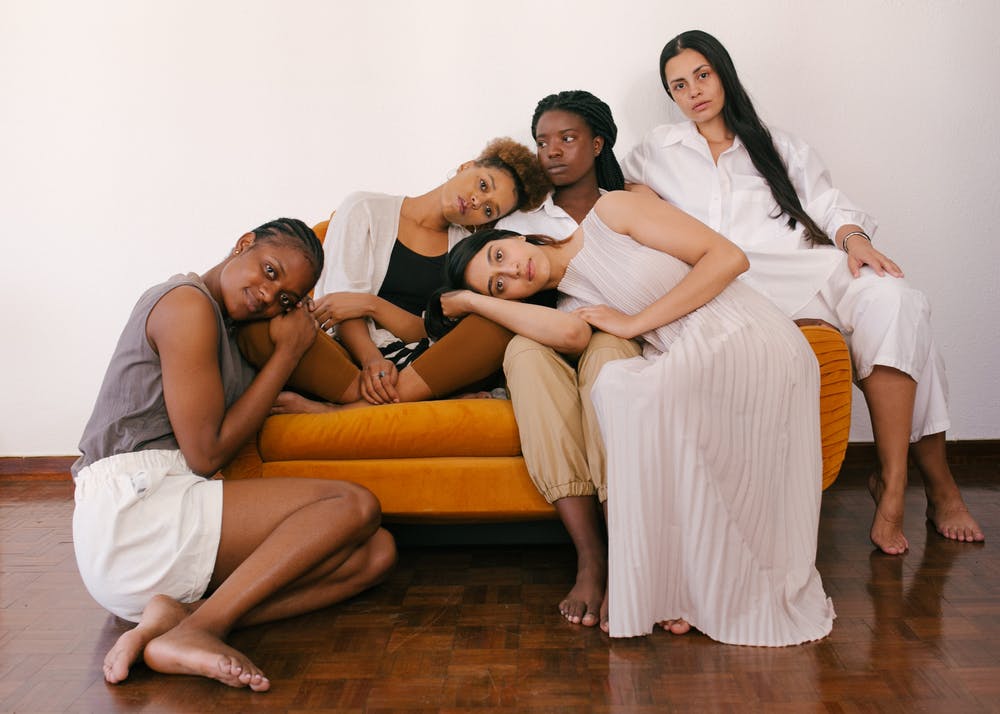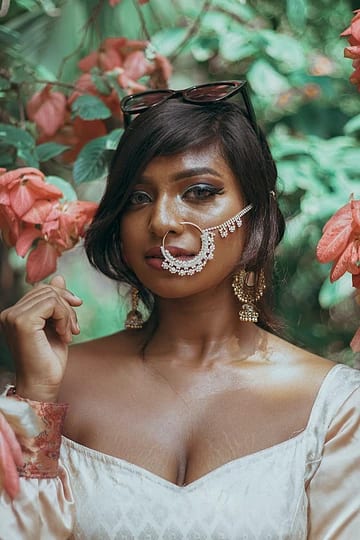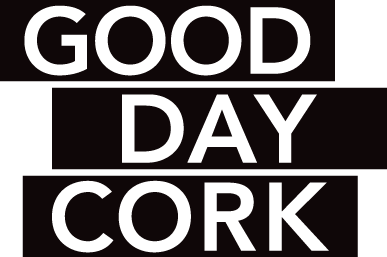The Colourblind Bind
By Priya Krishnan

01/03/2021 The Colour of Truth
‘I don’t see skin colour’,
‘I don’t see you as Black/Brown’
‘We’re all the same’
Really?
Dismissal
I know these words are meant in a positive way but my heart sinks at such comments. They seem benign but, taking a step back, the impact they have is actually detrimental.
Claiming not to see colour or to be racially ‘colour blind’ hinders meaningful dialogue or potential for positive change. Going further, it silently perpetuates racism and racial inequality and here’s why.
We inhabit a society where our obsession with colour manifests itself in our clothes, make up, hair colour, decor etc.
For those with the privilege of sight we live our lives in glorious technicolor, so it is bizarre and somewhat disconcerting that when it comes to race and skin colour, the conversation is quickly redirected with a claim not to see skin colour (… unless it relates to getting a tan).
Reading between the lines we hear ‘Move on, change the subject; we’re not going there.’
Because it’s not really about colour alone is it? It’s about the histories and current realities of what was and is done to Black and Brown people in the name of White supremacy, notions of White superiority and fixations on racial purity.
It tells me you don’t see the entirety of who I am, that you are only willing to accept the parts of me that you feel comfortable with. It tells me that you don’t want to have to acknowledge or discuss the issues I and other Black & Brown people face because of our skin colour and that you don’t want to have to do or change anything in your life to remedy this.
The truth is, being Black or Brown is still not seen and accepted as being equal to white. If Black lives truly mattered, to the same degree as White lives, there wouldn’t be a need for the BLM movement.
When Kamala Harris (It feels so good to write that!) made her acceptance speech, much was made of her dual racial heritage and the fact that she is the first Black woman to be VP. It was something that could not be denied, ignored or made light of.
When a White person says they don’t see colour or similar, it also implies that there is something wrong with being a colour other than White. The underlying message is one of pity or sympathy, ‘there, there, it’s not your fault you’re not white. I won’t hold it against you. We just won’t talk about any of it.’

Whose need to avoid discomfort is preferenced?
White people can choose to dismiss or discard skin colour, when for Black & Brown people that really isn’t an option, and that creates a toxic privilege. How do I feel safe around you when you claim not to see part of me?
Skin colour matters! It cannot and should not be ignored or denied, because we live in a society where racism is still rife. We can’t even say that it’s not blatant anymore; the last 4 years of the US presidency and the global rise of nationalism/fascism are proof that it is!
To claim racial colour-blindness is harmful to Black & Brown people. At best, it is patronising; at worst, gaslighting or denial of Black & Brown people’s lived experience. It effectively silences Black & Brown people, shutting down any meaningful conversation about race, racial identity and racial inequality.
Because it’s not really about colour alone is it? It’s about the histories and current realities of what was and is done to Black and Brown people in the name of White supremacy, notions of White superiority and fixations on racial purity.
If we do not even acknowledge the differences how can we even begin to address the problems that are staring us in the face.
We have to talk about race and racial differences so that we can address the reasons why racial inequality still exists and work towards dismantling the systems and structures that perpetuate it.
So, why are we so frightened of talking about race and colour?
Perhaps you don’t want the Black & Brown people in your life to feel different or singled out and are hoping that avoiding the issue will negate any discomfort… discomfort for whom though?
Your discomfort may last the course of the conversation or on the journey home, but it is short lived compared with the daily discomfort and pain Black & Brown people experience from living in a white centric society that still discriminates against us and is designed to treat us inferiorly.
Acknowledging skin colour would mean having to acknowledge the unfairness inherent in our society. Once you see it for yourself, there’s no unseeing it. And then, what do you do with that knowledge? I’m not expecting you to fight injustice for me or drop your day job to become an activist. I’m asking you to listen when I tell you there’s a problem and stand with me to try and resolve it.
As Angela Davies said, “…It is not enough to be non-racist. We must be anti-racist.”
You can heed this, ignore or discard it. That’s your privilege, but Black & Brown people still face racial macro-aggressions and an uneasy existence in a white centric society.

True Colours for Better Futures
Please don’t tell me you don’t see me as Brown. That is patently untrue. Regardless of how I dress, behave, speak or walk, what people first notice about me is my colour. That is to be expected. My Brown skin doesn’t define who I am as a person but it is an integral part of who I am.
My skin is a map and a record of my heritage, history and ancestral homeland. I will not let that be erased. I owe it to those who came before me and those who come after, to stand tall and be proud of who I am.
I’m not expecting you to fight injustice for me or drop your day job to become an activist. I’m asking you to listen when I tell you there’s a problem and stand with me to try and resolve it.
Perhaps the problem is that we think that to differentiate is to discriminate. Being different or acknowledging that difference, isn’t the problem. It’s the negative treatment received as a result of that difference which needs to be addressed.
Acknowledging my skin colour is not racist: calling me racial slurs, discriminating against me, excluding me or treating me inferiorly BECAUSE of my colour IS racist.
When you say you don’t see colour you are denying that there are any differences between us. They are words meant to reassure and soothe but your words mean little when I am being discriminated against precisely because of the colour you claim not to see.
Your words silence me and they discard my lived experience, because whilst we are equal we are still different and that is a beautiful thing. However the systems and structures which we both inhabit treat us differently, precisely due to the differences in our skin colour.
I am not interested in shaming anyone; I want to start a meaningful dialogue. These are hard conversations, but we have to have them if there’s any hope of real and lasting change.
I want things to change for myself and for my young son, who has already heard racist slurs, despite being lighter skinned. I want him to grow up in a world where he is measured by his character, not the colour of his skin.
I want him to grow up standing tall, not despite his biracial heritage but because of it. I owe it to him and myself to create a better world than the one we live in today.
In order for that to become a reality we need to acknowledge skin colour and listen to Black & Brown people’s lived experiences so that we can properly address racial inequality and work towards a community where the many manifestations of colour are seen and celebrated.
Our recommendation: Please read ‘This Book Is Anti-Racist: 20 Lessons on how to Wake Up, Take Action, and Do the Work’ by Tiffany Jewell.
We also recommend the video below ‘People are People’ by Think Speak Do Community Engagement – a Cork-based organisation facilitating community discussions.

